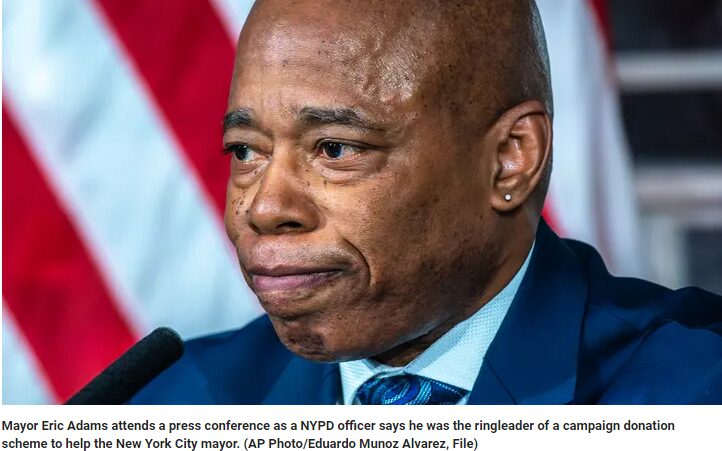Two bills focused on reparations for the descendants of enslaved Black Americans were shelved in the California legislature on Saturday, after proponents confirmed that the bills would not advance. The failure to pass these bills marks a significant setback for those advocating for reparative justice and compensation for historical injustices against Black communities.
The first bill, Senate Bill 1331, authored by Democratic state Senator Steven Bradford from Inglewood, proposed the creation of a new state fund dedicated to providing reparations. This fund would have been a financial reservoir to support initiatives aimed at addressing the historical and systemic inequalities faced by Black Americans. The second bill, Senate Bill 1403, also spearheaded by Senator Bradford, aimed to establish a state agency tasked with overseeing the reparations process. This agency would have been responsible for managing the distribution of funds, ensuring transparency, and defining eligibility criteria for individuals seeking reparations.
These bills were seen as crucial elements of a broader legislative agenda to address the enduring impact of racist policies that have led to disparities in various areas such as housing, education, and healthcare for Black Americans. Supporters of the bills argued that passing such legislation was necessary to acknowledge and begin to rectify the historical injustices that have contributed to ongoing racial inequalities in the state. The shelving of these bills signals a pause in these efforts, prompting discussions about the future of reparations in California and the broader United States.

Although the Democrat-led California legislature managed to pass a series of other bills designed to address historical racial injustices, none of these measures included provisions for direct payments to African-Americans. Instead, the approved legislation focused on broader policy reforms and initiatives intended to tackle systemic racism and promote equity across various sectors, such as education, housing, and criminal justice. However, the absence of direct financial compensation for African-Americans in these bills has sparked debate among advocates who argue that true reparative justice requires direct economic restitution to those who have suffered from generations of discrimination and inequality.
California Bill Could Allow ‘Molesters’ and ‘Rapists’ to Go Free, State Senate GOP Warns
Senator Steven Bradford explained that the decision to halt the progress of the reparations bills was driven by concerns that Governor Gavin Newsom might veto them if they reached his desk. Bradford emphasized the critical importance of these bills, stating, “We’re at the finish line, and as members of the Black Caucus, we owe it to the descendants of chattel slavery, to Black Californians, and Black Americans to push this legislation forward.” He urged his fellow lawmakers to reconsider their stance on the matter, emphasizing the need for a united effort to move these initiatives ahead.
Assemblymember Lori Wilson, Chair of the California Legislative Black Caucus (CLBC), echoed Bradford’s sentiments, acknowledging that the Black Caucus decided to pull the bills. She noted that more work was needed to refine the proposals before they could move forward. Wilson acknowledged the challenges they faced, stating, “We knew from the very beginning that it was an uphill battle. And we also knew from the very beginning that it would be a multiyear effort.” Her comments highlighted the long-term nature of the campaign for reparative justice and the persistence required to achieve meaningful progress.

In a statement posted on social media platform X, the CLBC expressed that they were “unable to participate in the legislative process collectively” and had only recently become aware of concerns related to Senate Bill 1403. This revelation pointed to communication and coordination challenges within the caucus, suggesting that further dialogue and alignment would be necessary to advance the bills successfully in the future.
Pelosi Applauds California Bill Offering Financial Support to Undocumented Migrants for Homeownership: Expanding the ‘American Dream’ to More People
The California Legislative Black Caucus (CLBC) stated, “Since we have already passed the amendment deadline, the decision has been made to continue refining this bill and reintroduce it in the next legislative session. As for Senate Bill 1331, the CLBC has decided not to advance it this year.”
On Saturday, a group of demonstrators who support reparations gathered at the California State Capitol to express their frustration over the stalled legislation. Among these activists, the Coalition for a Just & Equitable California strongly criticized the CLBC for not pushing the bills to a vote, even though they claimed there was enough support to pass them.
The Coalition took to social media platform X to voice their disappointment, stating, “This kind of betrayal cannot go unanswered. There must be a political price to pay. The days are over when politicians of any race or party can disrespect Black Americans and face no political consequences. We are not bound to any party or special interest group. We represent the living legacy of our Ancestors, who built this state and this nation over the past 400 years and who are owed reparations. We’re not just coming—we are HERE, demanding our checks and more.”
California Republican Assemblymember Bill Essayli, representing Corona, attempted to bring the reparations bills to a vote by making a motion, but no other lawmakers stepped up to second his motion, effectively halting any immediate action.

Essayli took to social media platform X to criticize the Democrats, accusing them of “going into hiding” and avoiding bringing the bills up for a vote despite having made long-standing promises to provide direct cash reparations to Americans affected by slavery. Essayli, who claimed to have engaged in sincere dialogue with supporters of the bills, clarified that while he did not agree with the idea of California taxpayers bearing the financial burden for the wrongs committed by slave states, he nonetheless believed that the issue warranted a proper debate and a recorded vote. “Politicians cannot be allowed to make promises to the people who elect them, and then hide like cowards when it’s time to go on record,” Essayli stated. “At minimum, the People were owed a hearing and an opportunity to know where their elected representative stands on the issue.”
Both Senate Bill 1331 and Senate Bill 1403 were moved to the inactive file just before midnight, effectively stalling them for this legislative session.
Governor Gavin Newsom, a Democrat, has not publicly commented on most of the other reparations-related bills. However, he signed a nearly $300 billion budget in June that earmarked up to $12 million for reparations legislation. The budget did not specify which specific proposals the funds would support, and there have been indications from Newsom’s administration suggesting opposition to some of the proposed measures. The governor has until September 30 to decide whether to sign the other reparations bills that have passed through the legislature.
When reached for comment on Saturday, the governor’s office referred to Newsom’s statements from earlier in the year, where he expressed his deep engagement with the topic of reparations. “I haven’t [just] read [the Reparations report] — I’ve devoured it. I’ve analyzed it. I’ve stress tested against things we’ve done, things we’re doing, things that we’d like to do, but can’t do because of constitutional constraints,” Newsom had told reporters. “And I’ve been working closely with the Black Caucus.”









